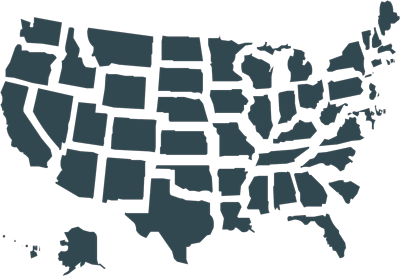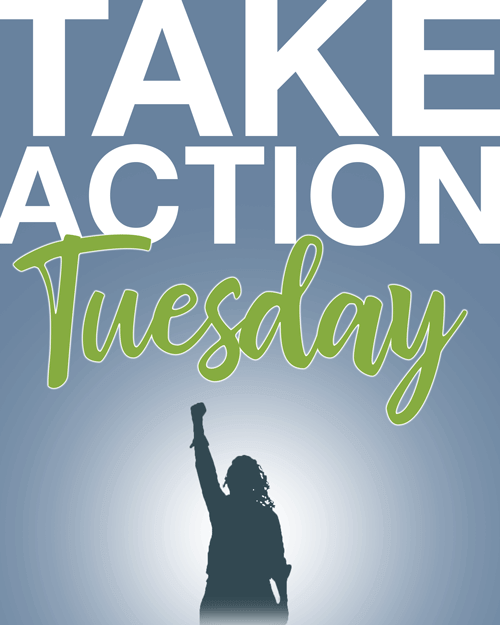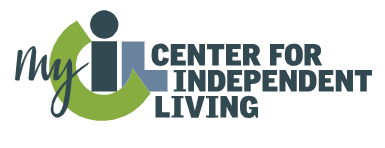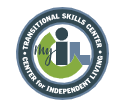Take Action Tuesday posts feature ways you can help improve the lives of people with disabilities — in your community and around the world.
From signing your name to a petition to emailing your local representative to share your stance on proposed legislature, many of these acts don’t take long but can make a real difference.
Discover what you can do on the national and state levels to improve the lives of people with disabilities.
Make a Difference Across the United States

Register Today: Milestones National Autism Conference on June 11–12 in Cleveland
The National Autism Conference on June 11–12 at the Cleveland I-X Center will detail practical strategies for all. Keynote speakers, workshops, exhibitors and more provide invaluable resources and information for people with autism, their families and support professionals. Learn more about the conference and register today!
Contact Your Members of Congress: Urge Them to Co-Sponsor the Disability Integration Act (DIA)
The DIA, a bipartisan bill, ensures people with disabilities have the right to live in and receive services in their own homes. It prevents people from being forced to live in institutions. In short, this act is designed to ensure the full integration of people with disabilities into communities.
We need your help to get this bill before a full vote in the House of Representatives. Contact your members of Congress today and ask they co-sponsor this bill (H.R. 555 and S. 117).
Learn more about the bill and what to say about DIA to your members of Congress.
Dial In: Join the Phone Meeting of the President’s Committee for People With Intellectual Disabilities (PCPID) on Thursday, March 21 and Friday, March 22
The PCPID is holding meetings to discuss their annual report to the President. The meetings — on Thursday, March 21 and Friday, March 22 from 9 a.m.–4:30 p.m. are open to the public. To listen in, dial 888-949–2790 and use the passcode 1989852. Learn more about the meeting and mission of PCPID.
Register Today: 2019 Disability Policy Seminar on April 8–10 in Washington D.C.
Attend the 2019 Disability Policy Seminar to enhance your advocacy skills while connecting with your fellow advocates and representatives on issues that matter to you. This three-day conference will be held at the Renaissance Washington in downtown D.C.
You’ll have the opportunity to discuss key issues with others from your state and attend informative sessions led by experts. Presentations include updates on employment policy, education policy, Medicaid, social security programs, federal funding and more. Register today!
Contact Your Legislators: Ask Them to Support the Surviving Widow(er) Income Fair Treatment (SWIFT) Act of 2019
The SWIFT Act would expand the social security benefits for widow(er)s and surviving divorced spouses. It would also fix outdated and arbitrary claiming restrictions, allowing for more flexibility when claiming benefits. Contact your legislators and ask they support this bill.
Learn more about what the SWIFT Act will do for older Americans and people with disabilities.
Participate in a Paid Research Study: Universal Design Practices to Enhance Work Outcomes
The Center for Assistive Technology and Environmental Access is looking for employed people with disabilities for their research study about work environments. Specifically, they want to know how the way you get around the office or take part in meetings affects your sense of team inclusion. Based on their findings, they’ll compile actions employers can take to make workplaces more inclusive.
Learn more about this paid research study and how you can take part in it.
Give Your Input: What Issues Should the Administration for Community Living (ACL) Prioritize Relating to Elder Abuse, Neglect and Exploitation
The ACL is working on determining the focus of the Elder Justice Coordinating Council — and they need your input! What issues do you think relating to elder abuse, neglect and exploitation should the council prioritize? Your input will help them make an informed decision on their activities over the next two years. Learn more about the input they are requesting.
Submitting your thoughts and ideas is easy. Just send an email to ejcc@acl.hhs.gov with the subject line “Thoughts and Ideas.” Input is due by Sept. 30, 2019.
Sign the Petition: Help Stop Any Funding Cuts or Caps to Medicaid
Join Easterseals as they work to prevent any funding cuts or caps to Medicaid. Submit the Easterseals form to add your name to the petition.
By submitting the form, you’re telling Congress that health services are crucial to people with disabilities and their loved ones. You’re joining the fight to stop Medicaid cuts and caps that prevent people with disabilities from getting the Home and Community Based Services they need to live their best, independent lives.
Participate in the Survey: For Seniors With Disabilities
If you’re a senior with a disability, The Americans with Disabilities Act (ADA) National Network wants to hear from you.
The ADA National Network is trying to learn how people like you get your information about services you can receive and your rights under the Americans with Disabilities Act — and how you use that information.
Take the survey and help the ADA National Network improve their future outreach initiatives to better support seniors with understanding their rights and available services.
Contact Your Members of Congress: Urge Them to Extend the Money Follows Person Program
The short-term funding extension for the Money Follows Person program — called the Medicaid Extenders Act 2019 — became law on Jan. 25, 2019. The bill included three months of funding. States have until September of 2019 to use this funding. It also extended the spousal impoverishment protections.
This protection allows one spouse to keep a share of their joint income and assets while the other spouse is in nursing care or receives Home and Community Based Services. Without this protection, the spouse not receiving services could face financial hardship. That’s because their joint income and assets would be used first to fund the care their spouse is receiving. Then, they’re left with not enough to cover their own living expenses.
Now, thanks to this new law, the protection is in place — but only until March 31, 2019. Contact your members of Congress today to urge them to extend the Money Follows the Person Program. Learn more about the Money Follows the Person Program.
Sign the Petition: Urge the Senate to Support the Convention on the Rights of Persons with Disabilities
The Convention on the Rights of Persons with Disabilities (CRPD) is an international treaty based on The Americans with Disabilities Act (ADA). It promotes the rights and protections of people with disabilities around the world.
There are 173 ratifications around the globe for this convention. Unfortunately, the United States has failed to ratify it by five votes. Since the failed voting, it has not come to a floor vote.
Submit the form to sign your name to the petition. The petition will be delivered in person to the offices of Senators in Washington, D.C.
Share Your Story: Help Prevent Medicaid Cuts by Submitting Your Story Online About Why Receiving Home and Community Based Services Is Important
The Arc is gathering stories from people like you about why Home and Community Based Services are important. They’re using these stories to advocate for continued funding of the Medicaid program.
Fill out the form and submit your story online to join the effort to protect Medicaid and Home and Community Based Services.
Make a Difference in Your State

Colorado
Share Your Story: Help Family Voices Colorado Inform the Public on What It’s Like to Navigate the Health Care System for a Child With Special Needs
Do you have a child with special needs? Family Voices Colorado would like to hear your story about what it’s like for your family to navigate the often complex health care system.
You can call, email or share your story on their Facebook page. Learn more about how you can help Family Voices Colorado spread the word on what it’s like caring for a child with special needs.

Illinois
Mark Your Calendar: 42nd Annual National Intercollegiate Wheelchair Basketball Tournament on March 14–16, 2019
The University of Illinois is hosting the 42nd Annual National Intercollegiate Wheelchair Basketball Tournament on March 14 through March 16, 2019 at the State Farm Center. Learn more about the tournament, including the schedule of events.
Submit a Form: Help Create a Sustainable Intellectual and Developmental Disabilities (ID/DD) Support System for Illinois by Using the Form to Email Your Legislators
Reach out to your Illinois legislators asking them to increase the funding for a sustainable ID/DD support system. This funding would improve the quality of services provided as well as decrease the number of people on the waiting list to receive the services.
Use this form to send a pre-written message to Illinois legislators that tell them you support increased funding for a sustainable ID/DD support system.

Oklahoma
Contact Your Legislators: Ask Legislators to Fund Home and Community Based Services
Oklahoma needs to continue funding the Home and Community Based Services people are receiving. Moreover, funding should cover those on a waiting list. In 2018, the number waiting to receive community-based services has grown to over 7,600.
Find your legislators’ contact info and reach out urging them to fund these critical services.

Pennsylvania
Sign the Petition: Add Your Name to Show Your Support of Funding for Pennsylvanians With Autism and Intellectual Disabilities
There is a shortage of direct support professionals. This shortage is leading to a long waiting list for people with autism or intellectual disabilities who want services that will help them live and work in their communities.
Use the form with its prepopulated message to reach out to the Governor and PA General Assembly. You’ll be urging them to make autism and intellectual disability a top priority in the budget.

Virginia
Submit Your Application for Partners in Policymaking: Join the 2019-2020 Class to Get the Advocacy Training You Need to Make a Difference in Your Community
Virginia Board for People with Disabilities is accepting applications for their Partners in Policymaking 2019-2020 class. The program — seven two-day sessions starting in September and running through April of 2020 — is for people with developmental disabilities and parents of young children with developmental disabilities.
During the program, you’ll gain valuable skills, develop resources and complete advocacy training that will help change your life — and the lives of people in your community. Submit your application by March 15, 2019.

Washington State
Mark Your Calendar: Join The Arc of Washington State for Their Advocacy Day on Wednesday, March 20 at the Capitol
Meet The Arc at 10 a.m. at the United Churches (across from the Capitol) for an hour and a half briefing on current issues. You’ll end with an afternoon of advocating.
The theme for March 20 Advocacy Day is “Incredible Need for $.” It focuses on how to communicate to the legislators in charge of creating the state budget that they need to include money for the needs of people with developmental disabilities. Learn more about Advocacy Days.
Mark Your Calendar: Attend the Generations’ Aging Well Retreat for Caregivers of Loved Ones with Alzheimer’s Disease
Join other caregivers on March 26, 9 a.m.–3 p.m. at the at Green Activities Center on the Vincennes University Campus for the Generations’ Aging Well Retreat. At this free event you hear experts speak about nutrition, advance care planning, mental health in older adults, the importance of volunteering, Alzheimer’s caregiving and more. The day includes a disposal for your unused or outdated medications, free health screenings, a free lunch and more. Learn more and register today!
Email Your Legislators: Ask Them to Prevent Discrimination Against People With Disabilities in Organ Transplants
Contact your legislator to tell them you support SB 5405. This bill ensures people with Down syndrome and other disabilities on transplant lists receive equal consideration. Sending your support is easy with the pre-filled email form!





